EU to exempt tax on 11,500 tonnes of Vietnamese tuna
| Tax for small businesses in Vietnam to be reduced by 30 percent | |
| Vietnam to raise taxable personal income threshold from July | |
| Vietnam tax revenue in five months reached US$ 21.5 million |
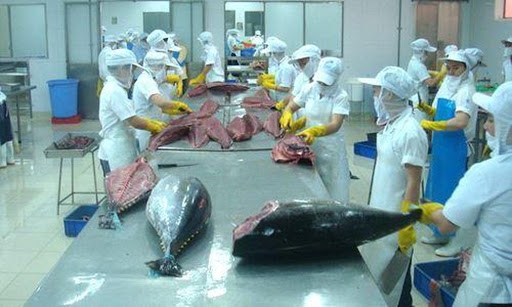 |
| The tariffs will be exempted up to a quota of 11,500 tonnes per year. (Photo: Dai doan ket) |
Specifically, the EU will eliminate import duty on frozen tuna loin and fillets code HS030487 under the terms of the three-year roadmap from the basic tax rate of 18% to 0% immediately after the agreement comes into effect, scheduled for August 1, according to Nhan Dan.
Meanwhile, the EU will remove tariffs for the steamed tenderloins and fillets from the basic rate of 24% to 0% across a 7-year roadmap.
For other types of canned tuna products, the tariffs will be exempted up to a quota of 11,500 tonnes per year.
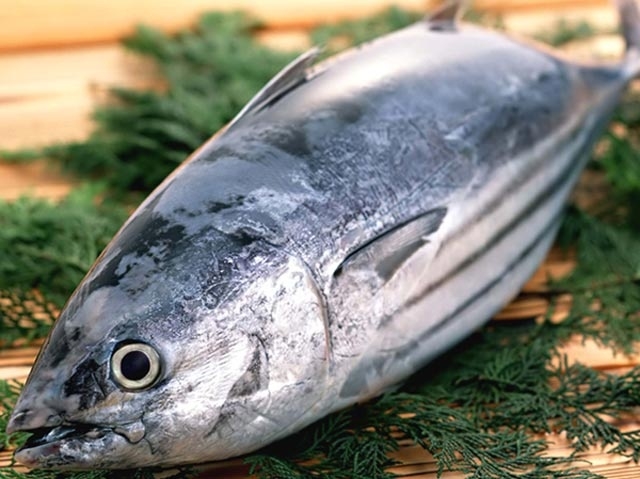 |
| Canned tuna exports to the EU increased 2.7% annually (Photo: Vietnam Biz) |
According to the General Department of Vietnam Customs, from January to April of 2020, Vietnam’s tuna exports to the EU dropped by 7.2% compared to the same period last year. Meanwhile, canned tuna exports to the EU increased 2.7% annually.
The EVFTA is expected to offer new opportunities for the Vietnamese tuna industry to enlarge and more easily access to new markets. The trade deal sets to help domestic tuna products enjoy tax incentives compared to those from Thailand and China.
These nations are key competitors to Vietnam and account for a large market share within the EU market, they have yet to sign an FTA with the EU.
Vietnam's tuna products mainly compete with similar products from Ecuador, Thailand, Indonesia and the Philippines. It is difficult for Vietnam to compete with other countries, because the catch volume, scale and tuna production capacity of these countries are much better than ours, reported by Industry and Trade News.
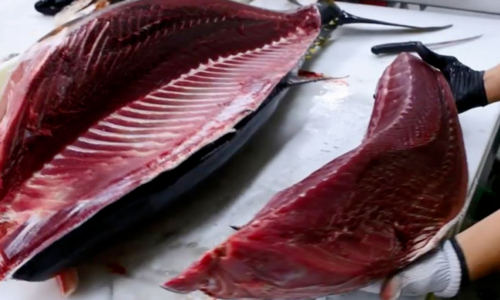 |
| The canned tuna demand in foreign markets is forecasted to keep rising (Photo: VnExpress) |
In addition, it is difficult for Vietnam to compete with the Philippines and Ecuador because they get preferential tariffs, while Vietnam does not. Because Vietnam's seafood is considered to reach the "maturity" level under the Generalized System of Preferential (GSP), which is the group of goods with a relatively high export value to the EU over the years. Therefore, from January 1, 2014 Vietnam has no longer been offered preferential treatment. Thus, Vietnam's tuna products are subject to a tax rate higher than 20.5%. This has reduced the competitiveness of Vietnam's tuna products.
The Vietnam Association of Seafood Exporters and Processors (VASEP) said since the coronavirus situation in key export markets is still complex, it has caused the world tuna market to fluctuate strongly. The canned tuna demand in foreign markets is forecasted to keep rising.
In addition, due to the coronavirus's impact, the people's income has been affected, therefore, they tend to seek inexpensive products such as canned tuna.
In this context, the VASEP advised domestic firms to strictly administer the world market in order to adjust appropriately, reported by VOV.
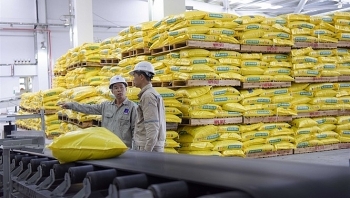 | Agricultural exports urged to meet EU standards, expert remarked Although Vietnamese agricultural exporters are the ones who really expect to leverage the EU-Vietnam Free Trade Agreement (EVFTA), an expert from RMIT University Vietnam warns ... |
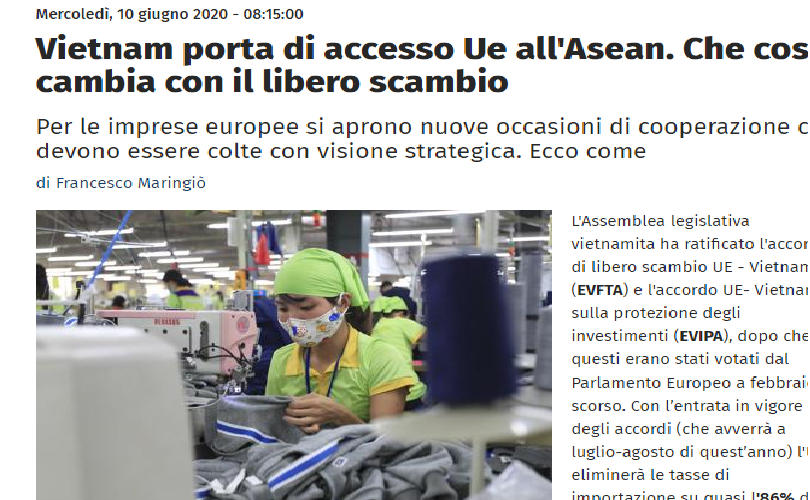 | Vietnam - a gateway for EU to access ASEAN: Italian news site The Italian news site has recently published an article highlighting the Vietnamese National Assembly’s ratification of the EU-Vietnam Free Trade Agreement (EVFTA) and the Investment ... |
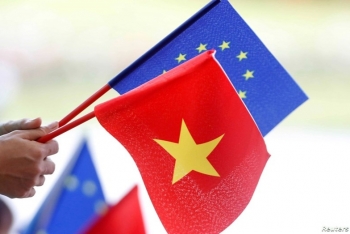 | Policies for Vietnam to catch opportunities from EU market after EVFTA and EVIPA The implementation of the EVFTA and EVIPA Agreement affirms the strategic development of Vietnam - EU bilateral relations, deepening and creating long-term economic benefits for ... |





